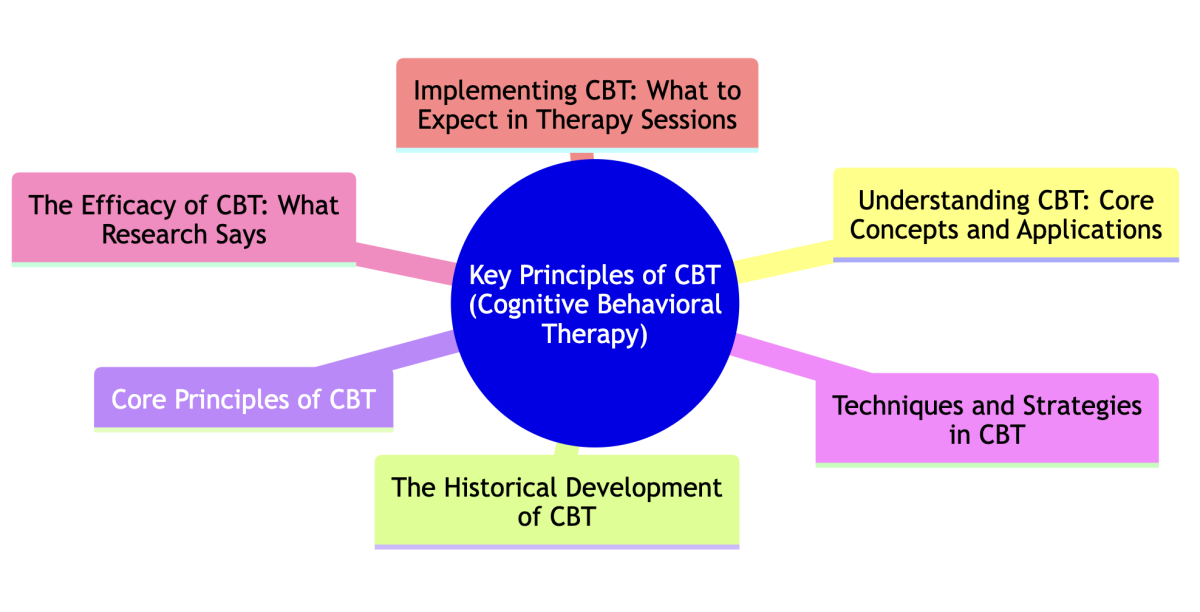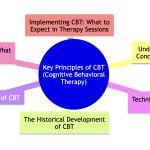Introduction to Cognitive Behavioral Therapy
Cognitive Behavioral Therapy (CBT) is a highly effective approach that addresses specific behavioral habits by identifying and working through the associated mental processes that lead to the unwanted behavior.
CBT has shown remarkable improvement for countless people - due to the highly structured and goal-oriented approach that can be applied to most individuals wanting to enhance their lives and mental health.
Brooklyn Psychologist, Dr. David Tzall, is committed to providing the most effective individual and couples therapy Brooklyn has to offer. We invite you to use this article to gain some insights into the role of CBT in modern approaches.
Key Takeaways
- Evidence-based Approach: CBT is one of the most researched forms of therapy and shows a strong track record of success.
- Skills for Self-help: Teaches skills to overcome future challenges.
- Short-term Treatment: Generally considered a short-term therapy option (often ranging from 5 to 20 sessions).
- Wide Applicability: It is effective for many mental health disorders, including depression, anxiety, and PTSD.
- Emphasis on Action: Focuses on changing negative thoughts and behaviors through active participation.

Understanding CBT: Core Concepts and Applications
Cognitive Behavioral Therapy operates on the principle that our thoughts, feelings, and behaviors are interconnected - and that actively changing negative thought patterns can lead to positive changes in emotions and behaviors.
This therapy provides individuals with tools to modify their thought patterns and reduce psychological distress.
Practical applications of CBT involve recognizing distorted thinking, modifying beliefs, and changing behaviors to improve emotional regulation and develop personal coping strategies.
CBT's Approach to Mental Health
CBT’s systematic approach focuses on identifying and challenging dysfunctional emotions, behaviors, and thoughts through a structured, goal-oriented process.
It empowers individuals by highlighting maladaptive behaviors and the importance of unlearning these behaviors through practice.
- Structured Sessions: Therapy sessions follow a predefined structure to ensure efficient use of time and effective progression towards goals.
- Active Participation: Clients identify issues and set their recovery goals.
- Skill Development: Focuses on developing skills for recognizing and countering distorted thoughts and maladaptive behaviors.
- Homework Assignments: Clients often receive homework to practice techniques learned in therapy outside of sessions.
- Focus on the Present: While CBT acknowledges past experiences, it predominantly focuses on present difficulties and ways to improve the current state of mind.
The Historical Development of CBT
Cognitive Behavioral Therapy (CBT) evolved through a remarkable history of innovation and empirical research.
Originating in the mid-20th century, CBT developed as a fusion of psychoanalytic concepts and behavioral therapy techniques.
Its growth was propelled by dissatisfaction with traditional psychoanalytical methods, which often lacked empirical support and required long treatment durations.
Pioneers of CBT
Dr. Aaron Beck
Dr. Aaron Beck, often regarded as the father of Cognitive Therapy, initially worked within the psychoanalytic framework. However, through clinical research, he shifted towards cognitive theory, emphasizing the role of negative thoughts in emotional distress. Beck's systematic approach reshaped therapeutic practices, introducing structured, short-term, goal-oriented sessions.
Dr. Albert Ellis
Parallel to Beck's work, Dr. Albert Ellis developed Rational Emotive Behavior Therapy (REBT) in the 1950s. REBT emphasized the impact of rational thinking on emotional health and was a precursor to the broader cognitive-behavioral models.
Judith Beck
Following in her father's footsteps, Judith Beck has been instrumental in refining and disseminating CBT techniques worldwide, ensuring that CBT's core principles adapt to new psychological insights and remain grounded in empirical evidence.
Core Principles of CBT
Cognitive Behavioral Therapy rests on several foundational principles that ensure its effectiveness and wide applicability.
At its core, CBT works by identifying and changing maladaptive thinking patterns that contribute to emotional and behavioral issues.
- Therapeutic Alliance: The relationship between therapist and client is collaborative, built on trust and mutual respect.
- Structured Sessions: Each session follows a structured format to maximize efficacy and focus on specific therapeutic goals.
- Goal-Oriented: Therapy aims to achieve specific, client-centered goals that are established in the initial sessions.
- Problem-Focused: CBT addresses current problems, rather than delving deep into the client's past, making it a practical, present-oriented therapy.
Techniques and Strategies in CBT
CBT employs a variety of techniques and strategies tailored to individual needs, making it highly effective for a range of disorders.
Cognitive restructuring, one of CBT’s fundamental techniques, involves identifying and challenging irrational or maladaptive thoughts.
Exposure therapy, another pivotal strategy, systematically desensitizes individuals to their fears through controlled exposure to the fear source, reducing anxiety over time.
Cognitive Distortions and How to Address Them
Polarized Thinking
Polarized thinking, or "black-and-white thinking," involves seeing things in extremes without any middle ground. CBT addresses this distortion by teaching clients to recognize shades of gray in their thought processes.
Overgeneralization
Clients who overgeneralize draw broad conclusions based on a single event. CBT techniques help these individuals examine the evidence for and against their conclusions, promoting a more balanced perspective.
The Efficacy of CBT: What Research Says
Research consistently supports Cognitive Behavioral Therapy (CBT) as an effective treatment across a spectrum of psychological disorders.
Studies show that CBT significantly improves conditions like depression, anxiety, post-traumatic stress disorder, and obsessive-compulsive disorder, often surpassing the effectiveness of other treatments or medication alone.
Comparative Effectiveness
CBT is robust compared to other therapeutic approaches.
It is often more effective due to its structured, practical approach, which teaches individuals to change their own thought patterns.
- Major Depressive Disorder: Research indicates that CBT reduces symptoms of depression more effectively than no treatment and some alternative therapies.
- Generalized Anxiety Disorder: CBT has been shown to be superior to standard care in managing anxiety symptoms.
- Chronic Pain Management: Studies show that CBT provides significant relief in chronic pain conditions, surpassing traditional care in terms of pain management and psychological distress.
- Eating Disorders: CBT is particularly effective in treating bulimia and binge eating disorder, often achieving better outcomes than medication.
- Substance Abuse: CBT significantly improves outcomes for substance dependence, particularly when combined with other therapeutic approaches.
Implementing CBT: What to Expect in Therapy Sessions
During Cognitive Behavioral Therapy sessions, clients can expect a structured approach focusing on specific problems.
The therapist and client work collaboratively through exercises that explore thoughts, feelings, and behaviors. Typical activities include:
- Identifying Distortions: Recognizing and labeling cognitive distortions.
- Homework Assignments: Practical exercises that reinforce session work.
- Behavioral Experiments: Testing beliefs against reality.
- Skills Practice: Developing and honing coping strategies.
The Role of the Therapist and the Client
Therapist's Role
The therapist acts as a guide and facilitator, helping to identify issues and offering tools for change. They maintain a supportive and empathetic environment while challenging the client to confront and modify unhelpful patterns.
Client's Role
The client is expected to actively participate, engaging with the therapy process, practicing skills outside of sessions, and providing feedback to ensure therapy is tailored to their needs.
Conclusion: Why CBT is a Choice for Mental Health in Brooklyn
CBT's proven effectiveness and practical approach make it a standout choice for those seeking mental health solutions in Brooklyn.
Its ability to teach clients how to alter their thought processes and behaviors offers lasting benefits, equipping them with tools to handle future challenges independently.
Brooklyn Psychologist, David Tzall, is recognized as a skilled practitioner of CBT.
With his expertise, clients are assured a professional and effective therapeutic experience that aligns with the highest standards of psychological care. His commitment to client well-being makes him a trusted resource in the community. If you want to take the first steps to fortifying happiness or improving relationships, consider David Tzall Psy.D.





